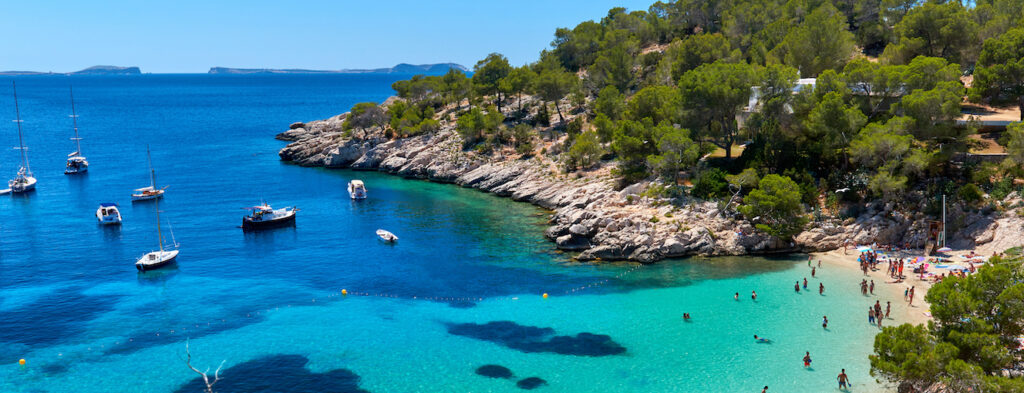
The success of the recent Fitur event should be celebrated for many reasons, not least for the optimism and excitement it created for tourism recovery.
Truly, it is time for Spain’s hotels to galvanise that excitement and start building momentum as all signs point north for international travel returning in a meaningful way.
According to the World Hotel Index, the country is currently home to four of the top 10 cities across Europe based on hotel bookings compared to 2019 levels. The latest figures show huge increases for these cities which include some of the most popular in the country including Malaga, Valencia, Sevilla and Barcelona.
Pent-up demand
At the time of writing, hotel bookings for Malaga are exceeding 115% of 2019 levels while hotel bookings in Valencia are now back to their same levels during the same period prior to the pandemic.
Demand for these popular traditional beach destinations, alongside significant progress in the vaccination rollout, is providing confidence that Spain is ready to embrace international tourists once more. There is further cause for optimism as the same data reveals hotel booking volumes have returned to 2019 levels, to join a handful of countries that are leading the recovery of the travel industry in Europe and globally.
While international visitors still comprise only 40% of all hotel guests, the figure is expected to grow to more than 60% by September, demonstrating the confidence in the destination and the consumer desire to return.
Hoteliers can and must capitalise on this sentiment.
While there may be doubts and questions about the future of Spain’s tourism industry, its stakeholders can act to ensure its revival as an attractive destination. For hoteliers, there are many steps they can take now to attract and sustain business.
Following are three important actions which might seem like the most simple, but will have a huge impact.
1. Engage with guests
Just as in the start of the pandemic when hotels reached out to customers with existing bookings to keep them abreast of the latest information, it is a good time to strike up a conversation with guests about their travel plans and reinforce health and hygiene messages.
As direct booking trends currently dominate distribution channels, regular interaction with past and potential future guests will help hotels to stand out. According to the Top 12 revenue makers behind the hotel booking reset of 2020, direct booking channels in Spain are second only to one of the large online booking sites for the second year running.
It’s also advisable to keep pricing and cancellation policies flexible to attract travellers in and simultaneously reassure them that hoteliers understand what is at stake. An investment in a holiday is an emotional purchase and, more than ever, one that consumers want to feel they have got right now, after months of travel restrictions.
2. Fish where the fish are
Current consumer sentiment also means hotels can expect their guests to be shopping around. It’s therefore a good time for them to be exploring new digital channels to market such as social media platforms and internationally-focused online booking sites, as increased volumes are driven online. Hoteliers must remember that the guests they are welcoming through their doors now are not the same guests they welcomed before the crisis.
Key, therefore, is the user-friendly shop window that hotels present to the world. The research, booking and payment mechanism must be quick and easy, yet the information must be rich to reassure travellers every step of the way.
Additionally, there are great opportunities for partnerships and cross promotion as consumers seek wider experiences as well as increased value from destinations.
3. Think creatively
Imagine the opportunity for the hotel that paints guests a picture of all that the local region or city has to offer in terms of food, wine and culture, and packages it up for them into a one-off experience. Then imagine the good will from local suppliers and partners as well as the powerful word-of-mouth marketing from guests that will result.
Further opportunity for hotels looking to rebuild revenue lies in ancillary products and services. Hotel businesses must consider what they are good at—food and drink, on-property amenities, other services—and think how to bottle them.
Thought should also be devoted to widening a hotel’s business mix through new experiences and ancillary services.
Hoteliers have been enormously resourceful during the pandemic and should feel pride for creating inspired and inspiring promotions to entice domestic visitors through their doors. They must now dig deep and do the same to help attract international visitors back to our shores.
While a lot remains unknown, we know the hotel booking cycle will generally go through five key stages until it resets into a different normal. And, Spain is absolutely on the cusp of the fifth and final stage of International Acceleration. The World Hotel Index shows travellers have already booked stays in Spain not only for summer 2021 but far beyond, with bookings also made for December and Christmas.
Indeed, the success of Fitur and the €100 million reaped in terms of the economic impact for Madrid, may be seen as the moment the travel and tourism industry was given a much hoped for restart.
As originally published in Cinco Días.